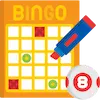Online poker is one of the most skill-based casino games, where strategy, psychology, and bankroll management separate the casual players from the long-term winners. Unlike slots or roulette games, poker isn’t just about luck—it’s about making the right moves at the right time.
Whether you’re a beginner learning Texas Hold’em or an experienced grinder looking to sharpen your tournament play, this guide covers everything you need to dominate online poker—including rules, poker hands, betting strategies, bankroll management, and the best poker sites for real money.
Top Online Poker Sites – Where to Play for Real Money
| Rank | Casino | Offer | Payout | Star Rating | Win Rate | Play |
|---|---|---|---|---|---|---|
| ★ |  | $1500 Bonus 🇺🇸🇨🇦 | 1 - 2 Days | 95% - 97% | Play Now |
|
| 2 |  | $1000 Bonus + 20 Free Spins 🇺🇸🇿🇦🇨🇦 | 1 - 2 Days | 98.61% | Play Now |
|
| 3 |  | $1000 Bonus 🇺🇸🇨🇦 | 1 - 3 Days | 97.65% | Play Now |
|
| 4 |  | $2500 Bonus 🇺🇸🇨🇦🇿🇦 | 2 - 3 Days | 98% | Play Now |
|
| 5 |  | $5000 Bonus 🇺🇸 | 5 Min - 24hrs | 98% | Play Now |
|
| 6 |  | $5000 Bonus 🇺🇸🇳🇱 | 24hrs - 10 Days | 98% | Play Now |
|
| 7 |  | C$1600 Bonus + 150 FS 🇨🇦🇿🇦🇦🇺🇬🇧🇺🇸 | 24hrs - 4 Days | 96.4% | Play Now |
|
| 8 |  | $4000 + $75 FREE Crypto Chip 🇺🇸🇨🇦 | 1 Day | 98.02% | Play Now |
|
| 9 |  | $/C$777 + 250 FS 🇺🇸🇨🇦🇦🇺🇬🇧 | 24hrs - 5 Days | 96.14% | Play Now |
|
| 10 |  | $4500 + $75 FREE Crypto Chip 🇺🇸🇨🇦 | 24hrs - 5 Days | 99% | Play Now |
How We Choose the Best Poker Sites
Choosing the right online poker site is crucial for fair play, game selection, and fast payouts.
Here’s what we look for when vetting online poker sites:
✔ Licensed & regulated poker rooms – We only choose legal online poker sites to ensure fair games and secure transactions.
✔ Variety of poker games – The best sites offer Texas Hold’em, Omaha, Seven-Card Stud, and more.
✔ Tournaments & cash games – Sites with large prize pools, freerolls, and low-stakes options.
✔ Fast withdrawals & multiple banking options – To ensure your winnings are quickly accessible.
✔ Poker bonuses & rakeback rewards – Many sites offer deposit bonuses and loyalty programs for extra value.

Poker Hand Rankings – What Hands Win in Online Poker?
Knowing which hands beat what is fundamental to making smart betting decisions. Here’s the full list of poker hand rankings from strongest to weakest:
| Poker Hand | Example | Description |
|---|---|---|
| Royal Flush | ♠A ♠K ♠Q ♠J ♠10 | Best possible hand, five highest-ranked suited cards |
| Straight Flush | ♥8 ♥7 ♥6 ♥5 ♥4 | Five consecutive suited cards |
| Four of a Kind | ♦9 ♦9 ♦9 ♦9 ♠3 | Four cards of the same rank |
| Full House | ♣J ♣J ♣J ♠8 ♠8 | Three of a kind + a pair |
| Flush | ♥K ♥Q ♥8 ♥5 ♥2 | Five suited cards, not in sequence |
| Straight | ♠10 ♦9 ♥8 ♣7 ♠6 | Five consecutive cards (different suits) |
| Three of a Kind | ♦4 ♦4 ♦4 ♠10 ♣8 | Three cards of the same rank |
| Two Pair | ♠A ♠A ♥5 ♥5 ♦9 | Two different pairs |
| One Pair | ♣K ♣K ♠6 ♦3 ♥2 | A single pair of matching cards |
| High Card | ♠Q ♦9 ♣6 ♥3 ♠2 | No combination—highest card wins |
🚨 Pro Tip: Most winning hands in online Texas Hold’em are one pair or two pair, so don’t overplay weak hands like low straights or small flushes.
See Also: Best Poker Hands & When to Fold
Common Poker Rules Found in All Games
Although different poker variations have unique rules, the core gameplay mechanics remain the same across all formats. Here are the fundamental rules of poker that apply to every version:
1. The Deck & Players
✔ Poker is played with a standard 52-card deck.
✔ Most games involve 2 to 10 players at a table.

2. The Objective
✔ The goal is to form the best five-card hand or to make opponents fold before the showdown.
3. How to Play Poker
Most poker games follow four betting rounds:
- Pre-Flop – Players receive their hole cards and make an initial bet.
- The Flop – The first three community cards are dealt, followed by betting.
- The Turn – A fourth community card is dealt, followed by another betting round.
- The River – The final community card is revealed, followed by the last betting round.
- The Showdown – After the final round, players show their hands, and the strongest five-card combination wins the pot.
4. Betting Actions
✔ Within the multiple rounds of betting, players can:
- Check (pass action without betting).
- Bet (place a wager).
- Call (match another player’s bet).
- Raise (increase the bet size).
- Fold (give up the hand).
5. Hand Rankings (Same for All Poker Games)
✔ Poker hand rankings determine the winner (see Poker Hand Rankings section).
🚨 Pro Tip: Learning when to fold is one of the most important poker skills—don’t chase bad hands!
Popular Poker Variations & Their Differences
Texas Hold’em
The Most Popular Poker Game
✔ Players are dealt two hole cards and share five community cards.
✔ The best five-card hand wins.
✔ Used in WSOP & online poker tournaments.
👉 Strategy: Strong starting hand selection, position awareness, and aggressive betting.
Omaha Poker
More Cards, Bigger Hands
✔ Players get four hole cards, but can only use two plus three community cards.
✔ Hands are stronger than in Hold’em due to more card combinations.
👉 Strategy: Focus on nut hands, as second-best hands often lose big pots.
Seven-Card Stud
No Community Cards
✔ Each player is dealt seven cards (three face-down, four face-up).
✔ The best five-card hand wins—no shared cards.
👉 Strategy: Paying attention to opponents’ exposed cards is crucial.
Five-Card Draw
Classic Poker
✔ Each player gets five private cards and can exchange up to three for new ones.
✔ The simplest format, great for beginners and casual games.
👉 Strategy: Bluffing is key since there are no community cards to read opponents.
Razz Poker
Lowball Stud Variation
✔ A Seven-Card Stud variation where the lowest five-card hand wins.
✔ Aces are always low, and straights/flushes don’t count against you.
👉 Strategy: Play hands with low cards and avoid face cards or paired hands.
HORSE Poker
A Mix of Five Games
✔ Players rotate through five poker variations in this order:
- Eight or Better (Stud Hi-Lo)
- Hold’em
- Omaha Hi-Lo
- Razz
- Stud (Seven-Card)
👉 Strategy: Requires adaptability—players must be skilled in multiple poker formats.
🚨 Pro Tip: If you’re new to poker, start with Texas Hold’em. If you’re looking for more action, try Omaha. For strategic depth, Seven-Card Stud or HORSE are great choices.
🚨 Pro Tip: Don’t play the same way every hand—mix up your strategy to stay unpredictable.
See Also: How to Read Opponents in Poker – Spot Their Tells & Betting Patterns
Expert Tips for Playing Online Poker

✅ Play at the right stakes – Don’t jump into high-stakes poker games if you’re not ready.
✅ Be patient – Poker is about long-term strategy, not quick wins.
✅ Learn to fold – Don’t call just because you’re already in the hand.
✅ Avoid multi-tabling as a beginner – Focus on one game at a time.
✅ Watch your opponents – Identify patterns in their betting behavior.
✅ Use a HUD (Heads-Up Display) – Track poker stats for better decisions.
🚨 Pro Tip: Bluffing works best against players who fold too often—don’t try it on a calling station!
Conclusion – Play Smart & Beat Online Poker
Online poker is a game where skill beats luck in the long run. To succeed, follow these key takeaways:
- Choose the best poker site with good traffic and soft games.
- Master hand rankings and table position for better decisions.
- Use bankroll management to avoid going broke.
- Adopt a winning strategy—Tight-Aggressive (TAG) is great for beginners.
- Practice and track your results to improve over time.









